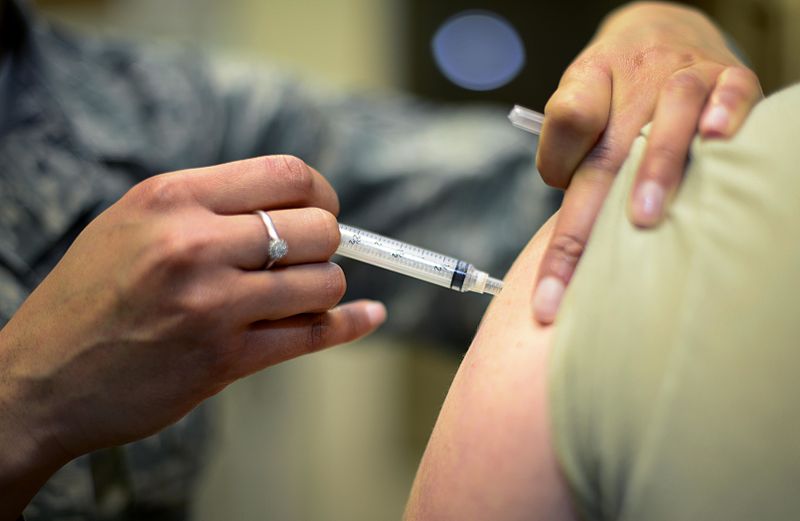The U.S. almost lost its nearly 20-year measles-free status due to an epidemic in New York. If the outbreak in New York had hit its one-year mark on October 2, the status would have been taken away as it relies on a lack of continuous measles epidemics for at least one year.
The Centers for Disease Control and Prevention has reported that the outbreaks started on Sept. 30 of last year in New York City and on Oct. 1, also of last year, in New York State. Fortunately, New York City and New York State announced the ends of their respective outbreaks on Sept. 3 and Oct. 3, staving off the end of the status.
According to Vox, measles is the most contagious virus known to humans. Measles can lead to blindness, deafness, brain swelling, intellectual disabilities and, in some cases, death. The disease is now becoming more prevalent.
It is believed that the outbreaks were mainly the result of travelers visiting small groups of people and inadvertently introducing the virus. Many Orthodox Jewish communities were affected due to lower rates of vaccination and introduction by outside visitors.
These groups of people are not protected by herd immunity, which occurs when enough people are vaccinated to prevent the unvaccinated from getting sick. They instead are prone to anti-vaccine clustering. This happens when a disease gets brought into contact with a tight-knit, conservative community that is less likely to be vaccinated, causing the disease to spread quickly.
New York’s vaccination rates are high at 97.2 percent; it is the small communities that cause concern and may end the U.S.’s measles-free status.
Religious and philosophical exemptions have induced parents to prevent their children from being vaccinated. Many agree that a lack of knowledge on the benefits of vaccines are to blame. As a result of the outbreaks, New York is cracking down this school year by refusing to allow religious exceptions when it comes to vaccines required by public schools.
According to the New York Times, “[H]ealth officials warned on Tuesday that as school begins the highly contagious disease could easily return, particularly if vaccination rates drop again.”
The Centers for Disease Control and Prevention reported more than 1200 measles cases at the beginning of September. That’s up from 372 in 2018, and is the highest number of reported cases since 1992.
Vaccinations are the first line of defense against measles, and many New Yorkers hope for a fully immunized city.
Florida, on the other hand, still allows religious exemptions from immunization. There have only been three reported cases of measles in Florida this year, one of which was reported in October. In 2018, 15 cases were reported. According to Florida Health, “Fewer than 10 cases were reported each year from 2013 to 2017.”
The few cases that do appear in Florida are in most part due to international travel. The October case was not related to travel, however, and the 93 people who had possible exposure to the affected have undergone contact investigations, which tests the vaccination status of the individuals.
According to the Gainesville Sun, “UF requires all incoming students to have had the MMR vaccine, which is meant to protect against measles…” The Sun also reported that most people who get the measles have not been vaccinated.
UF Health reported that 90 percent of those who come into contact with someone infected will contract the virus. However, the UF Student Health Care Center has said, “At this time, no cases of measles have been identified on the UF campus.”
According to the Sarasota Herald-Tribune, “Despite rising concerns about a resurgence of childhood illnesses, legislation aimed at strengthening vaccination requirements for Florida schoolkids already appears dead on arrival.”
Religious exemptions from vaccinations have increased in Florida in conjunction with the rising anti-vaccination movement. Members of this movement have asked lawmakers to not pass bills that would get rid of non-medical exemptions.
Those opposed to the proposed legislation argue that not being immunized is a freedom, and any hypothetical laws would be infringing upon the right not to be vaccinated.
Featured photo: A vaccine is administered. (Unmodified photo by Senior Airman Areca Wilson used under a Creative Commons license. https://bit.ly/1RAfqDf)





